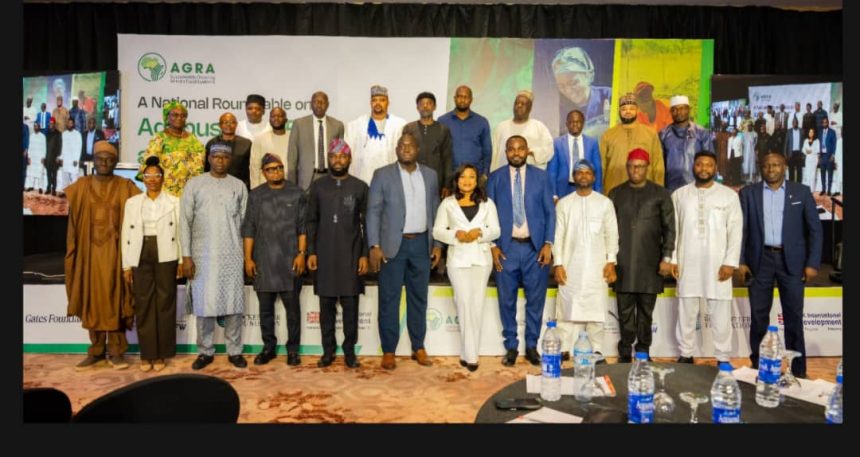Nigeria’s agricultural sector took a bold step toward transformative change with the successful convening of the National Agricultural Finance & Investment Roundtable, held on June 30th at the Abuja Continental Hotel.
Organized by AGRA, the roundtable convened over 100 stakeholders from government, finance, agribusiness, farmer organizations, and development partners to co-create tangible, scalable solutions to the persistent challenges of agricultural financing. The event culminated in the formation of a multi-stakeholder Technical Working Group tasked with advancing inclusive, farmer-focused investment strategies across Nigeria’s agri-food systems.
For too long, structural inefficiencies, high perceived risks, and fragmented policies have kept smallholder farmers—the backbone of Nigeria’s food systems—on the margins of financial inclusion.
The roundtable, held under the theme “Scaling What Works, Fixing What Doesn’t,” provided a timely platform to unpack these barriers and build a unified response that matches the scale of the challenge.
It signaled a shift from siloed discussions to collaborative planning, with partners committing to design innovative models and crowd in investment for greater impact.
Participants reflected a wide array of voices, from federal and state ministries, the Bank of Agriculture, commercial banks, microfinance institutions, aggregators, processors, fintech innovators, and farmer-led organizations, to regional and international actors such as Heifer International and GAIN.
Setting the strategic tone, Ayodeji Balogun, Group Managing Director of AFEX Limited, delivered a compelling keynote that captured the urgency of the moment.
“This is not about quick fixes. It’s about initiating the kind of deep, collaborative dialogue that de-risks agriculture, builds trust in our systems, and guides capital toward where it can have the most transformational impact—directly with our farmers,” he said.
The roundtable featured a series of engaging panels and solution labs, including “Unlocking Investment Barriers” and “Strengthening Private-Government Partnerships for Sustainable Investment,” both of which yielded concrete recommendations on blended finance models, digital tools, targeted incentives, and policy alignment.
A live “Investment Marketplace” showcased examples of high-potential finance models already delivering on the ground—from angel networks to cooperative-backed guarantees—demonstrating that scalable innovation is not just possible but underway.
Government and financial sector leaders expressed strong commitment to the new coalition. Representing the Honourable Minister of Agriculture and Food Security, Director of Planning and Policy Coordination Ibrahim Taminu emphasized the role of the state in enabling progress.
“This high-level dialogue is a crucial step toward a more integrated ecosystem. We are eager to co-create policies that respond to the real needs of both investors and our farming communities,” he stated.
Echoing this commitment, Ayo Sotinrin, Managing Director of the Bank of Agriculture, said: “We are ready to lead, not only with capital, but with partnerships that deliver innovation where it matters—at the last mile.”
The roundtable’s closing plenary generated consensus on next steps, including the formation of a Technical Working Group with a clear mandate: to translate dialogue into design, and commitments into coordinated action.
This coalition will serve as an engine for piloting and scaling innovative solutions, ranging from climate-responsive finance products to gender- and youth-targeted investment vehicles, as well as the use of digital platforms to support traceability, transparency, and reach. The group will also support government efforts to harmonize policies and incentives that enable long-term investment.
AGRA’s Country Director, Dr. Rufus Idris, summarized the significance of the moment. “This coalition is a tangible expression of our collective resolve to remove barriers, scale solutions that work, and empower Nigeria’s farmers to thrive.
$Our ambition is not just to improve access to finance—but to ensure that finance becomes a real driver of food security, resilience, and prosperity across Nigeria.” he said.
The National Agricultural Finance & Investment Roundtable marks the beginning of a new chapter—one in which systems-level collaboration, policy coherence, and inclusive innovation converge to unlock the full potential of Nigeria’s agricultural economy.












